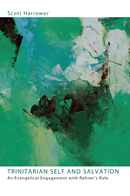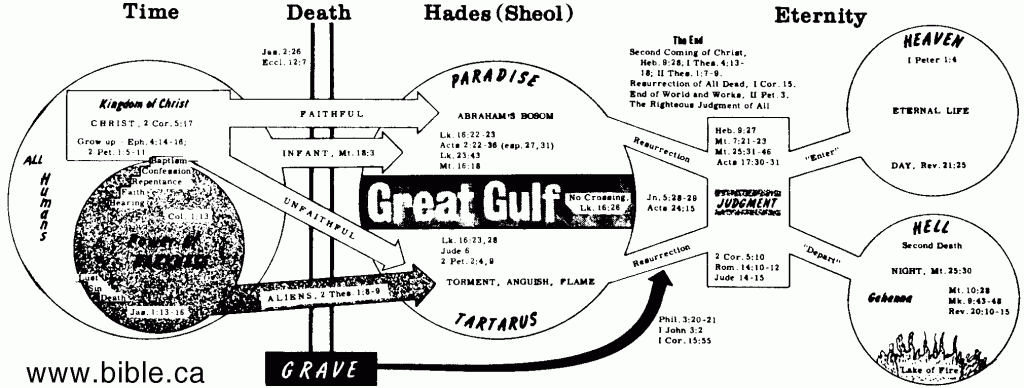 Can there be be such a thing as a novel and new work in the area of theology? I suspect not, but there are places where our current thought, practice and doctrine so intertwine with both modern ecclesiastical intellect and the real world, that the exploration perforce covers old ground in new ways and towards new ends. Scott Harrower’s Trinitarian Self and Salvation is one of these explorations.
Can there be be such a thing as a novel and new work in the area of theology? I suspect not, but there are places where our current thought, practice and doctrine so intertwine with both modern ecclesiastical intellect and the real world, that the exploration perforce covers old ground in new ways and towards new ends. Scott Harrower’s Trinitarian Self and Salvation is one of these explorations.
This deeply theological book, a published doctoral thesis, is, in Harrower’s own terms, an “Evangelical Engagement with Rahner’s Rule.” This is a theologically technical landscape to journey through and so it bears some explanation. It relates to our understanding of how the immanent Trinity (God as God is for all eternity) and the economic Trinity (God as God is revealed and acting in history) can be understood together. Harrower himself gives excellent background.
This axiom, RR, is defined as follows in Karl Rahner’s classic work The Trinity: “The ‘economic’ Trinity is the ‘immanent’ Trinity and the ‘immanent’ Trinity is the ‘economic’ Trinity.” (Page 1)
Evangelicals with a high view of Scripture tend to choose either of two approaches to RR… There is firstly the “strict realist reading” (SRR) of RR, secondly, a “loose realist reading” (LRR) of RR. (Page 3)
Quoting Olson, “interpreters of Rahner’s Rule have tended to divide into two camps: those who believe in a strong identity of immanent and economic Trinity and those who would qualify that identity by positing a prior actuality of the immanent Trinity.” (Page 6)
In other words, to borrow from Giles from Harrower’s footnote on page 7, the SRR of RR connotes an identification between the economic and the immanent Trinity, and the LRR of RR connotes simply a correlation between the economic and immanent Trinity.
Harrower’s focus is to assess the strength of the SRR of RR by means of an exegetical study of Luke-Acts. He does not focus on the practical implications of either the SRR or the LRR but they are there in the background.
The inclusion of Giles as a contemporary Evangelical theologian who “employs the LRR” (Page 7) brings to bear the sphere of subordinationism within the Trinity and the correlative theology of subordinationism in terms of gender roles. It may be over-simplifying but we can take the LRR to be a generally egalitarian view of God and the effects of salvation history, and the SRR to be, generally, a complementarian view that reads the subordination of Christ back into the very being of the Godhead and then extends its applicability to many, if not all, areas of life.
Harrower’s method is simple enough. He unpacks the concepts, puts clarifying bounds on his terms, and then gives some detailed background on Rahner himself so that we can be clear about what is at stake. Rahner held to an SRR and it was here in this background information that my own interest began was piqued. I found myself reading of thoughts and phrases that I myself had employed to speak of the Trinity (e.g. “[a theology] which only allows for the Son to become incarnate”, Page 34; “The Christology is thus a descending Christology in which Christ has his identity from God he Father’s expression of himself towards the world in the Logos as his symbol.”, Page 43). Was I SRR or LRR? I had reached the end of my previous thinking and now precision was expected of me!
The conclusion is made clear from the beginning – Harrower’s mission is to demonstrate the flaws of an SRR of RR. Should I be seeking to line up beside him or give a retort to each point made? The best theological journeys are the ones where you are not quite sure where you will end up.
Before his exegetical thrust the background includes some strictly theological reflections on the flaws of the SRR. Harrower has enumerated these from Page 46 under informative headings. I had a number of “I hadn’t thought of that” moments in this section. Consider these gems that struck me in particular:
- The strong identification of the economic with the immanent implies an essential necessity for God to be incarnate and therefore an essential reliance on creation/redemption in the very being of God. Can God still be God without creating and saving by this view? “…in Rahner’s theology God is dependent on the world for the fruition of his selfhood.” (Page 48)
- “Rahner’s axiom detracts from the incarnation because it asserts that God the Son’s relations with the other person of the Trinity in history must be exactly as they are for God the Son within God’s immanent self… Thus, the extent of the condescension of God in the incarnation, and salvation history as the context for the incarnation may have a reduced place in Rahner’s theology.” (Page 53). “Thus Rahner does not sufficiently deal with the two “states of Christ”: his humiliation and glorification.” (Page 54)
This last point is key – the emphasis of the SRR elevates the fullness (or at least the precision) of the revelation of God in the incarnation – but this is at the expense of the condescension of God in the incarnation. The tension is clear, in Christ God brought all of himself, and at the same time emptied himself so that he might be, for us, the Son of Man, Messiah and Saviour. The SRR implies a complete (cost-free?) continuation of Trinitarian relationship before and after the incarnation. The LRR affirms that “the incarnation involved a change in the way in which God relates to himself as Trinity ater God the Son took on human flesh.” (Page 59).
Harrower picks up this point a number of times throughout and it enables him to approach his exegesis of Luke-Acts through the Christological lens of the “messianic role” in which in the light of “his anticipated eschatological work and revelation, Jesus’ work in the economy of salvation is an incompete revelation of who he is.” (Page 73). Harrower does not pursue it, but it would be an interesting exercise to thoroughly correlate the RR considerations with the hermeneutical perspective of the likes of N. T. Wright. The starting point might be this:
Jesus relates to the Father and the Spirit in a specific messianic manner which is a newly-structured relationality. To hold the contrary opinion, namely that the trinitarian relations in the economy of salvation are the unrestrained self-expression of God’s immanent taxis, is to lose sight of Jesus’ vocation as Messiah and its significance for Christian theology. (Page 79)
This understanding sets up Harrower’s basic exegetical argument: Take an element of the messianic shape of Christ’s ministry, apply the SRR to apply that shape to the essence of God, demonstrate the absurdity, inconsistency, or undesirability of that shape. The last two chapters exercises this argument by considering both Father-Son and Son-Holy Spirit relationships.
At the end of the journey that is this book I was left with varied thoughts. I was variously impressed, frustrated, intrigued, and challenged along the way. I am aware that because of its interaction with the subordinationism debate this is likely to be a book of some controversy, particularly in the Australian scene. As I was with Giles, I am sympathetic to Harrower’s stance.
What I most desire having read this book is further engagement. I want to read a rebuttal. I will seek to find an opportunity to share a coffee and a discussion with the author. One thing is sure, Harrower’s presence in the Australian and international theological academy is a welcome one and a worthy example of the next generation of Christian thought leaders.





